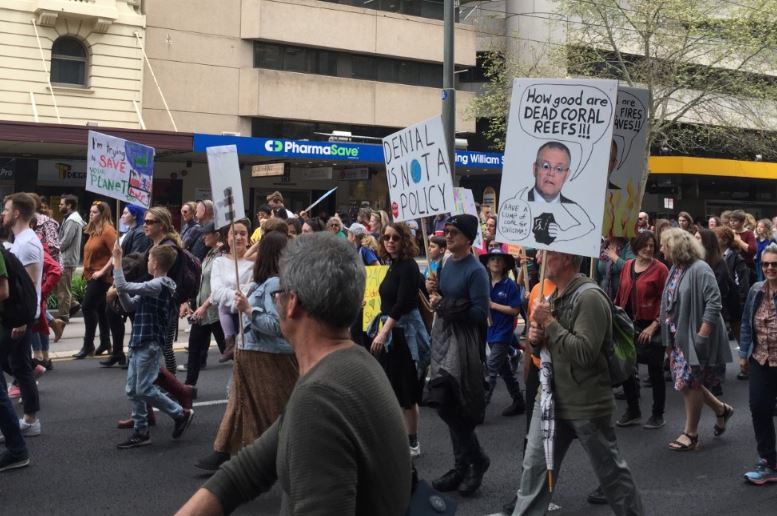
If Australian politicians desire to have disruptive protestors arrested, how can activists effectively voice criticisms of transnational corporations behaving badly?
Flinders University researcher Dr Julia Anaf has examined how civil action takes shape when big corporations exert a negative effect on public health – and found that only some protests prove to be effective.
Dr Anaf, from the Southgate Institute for Health, Society and Equity at Flinders University, has examined the effect of two ‘David versus Goliath’ situations, where a range of civil society actors objected to aspects of McDonald’s fast food operations in Australia, and Rio Tinto mining operations in Australia and Southern Africa.
Through interviewing a mix of community-based campaigners, union representatives and non-government organisations, Dr Anaf found that ‘people power’ being exerted through organised online campaigns, was very effective in a 2013 protest against the expansion of McDonald’s Australian operations.
“The standout feature for me was a change.org petition to raise enough money to send a campaign representative to meet with the CEO of McDonald’s in Chicago,” she says.
“This campaign sought up to $3000 for the cost of one airfare but achieved this goal within an hour and eventually raised approximately $43,000.
“This allowed for several people to attend, and enabled a strong media campaign in the USA,” says Dr Anaf.
The campaign attracted approximately 105,000 online signatures in support of this ‘grass roots’ initiative.
“Similarly, street marches were another very successful strategy for raising awareness. On one occasion organisers expected 300, but 3000 people attended; attracting a lot of media coverage at the time.”
By comparison, Dr Anaf found that activists protesting against Rio Tinto in their mainly coal mining towns did not report any equivalent coordinated standout strategies or online campaigns. Instead, they projected more of a sense of being crushed by an overwhelming opponent.
The research – “” by Julia Anaf, Fran Baum, Matthew Fisher and Sharon Friel – has been published in the journal Health Promotion International (DOI: 10.1093/heapro/daz088/5553724), Oxford Academic.
The findings are based on 19 interviews conducted with Australian participants across two exploratory projects.
In highlighting what activities people undertake to protect community health and wellbeing against the strength of corporate power, the research acknowledges that unequal power relations exist between transnational corporations that promote their own financial interests, and activists and advocates who support population and environmental health by challenging corporate power.
“The take home message is the need for much stronger regulatory frameworks to constrain the operations of transnational corporations, both nationally and globally,” says Dr Anaf.
“In all industry sectors – not just fast food and extractives that are reported in this research – we need strong taxation laws that address the offshoring of profits , as this undermines governments’ fiscal capacity for health and welfare spending.
“We also need stronger environmental laws to combat pollution, stronger planning laws to check industry expansion, stronger employment laws to counter the casualisation of workers, improved food standards to alleviate junk food issues, and closing legal loopholes concerning political donations and lobbying.
“We need strong binding instruments in place of the mainly voluntary codes that currently prevail, which promote corporate rather than community interests.
“Changing all this needs great political will, within the context of a globalised political landscape – and this is no easy task.”








